Hello everyone and welcome to my beautiful writing on how I got to discover that Nigeria is the leading rice producing country in west Africa..
In sub-Saharan Africa rice ranks fourth in production after sorghum, maize and millet. Nigeria is the continent’s leading rice producer and produces over 46% of west Africa’s harvest.Rice is one of the staple foods globally, ranking third after wheat and maize in terms of production and consumption. It contributes over 20% of the total calorie intake of the human population.
The country is also a big consumer. Nigeria is one of the world’s largest markets for parboiled rice, consuming on average US$4 billion worth of it each year.
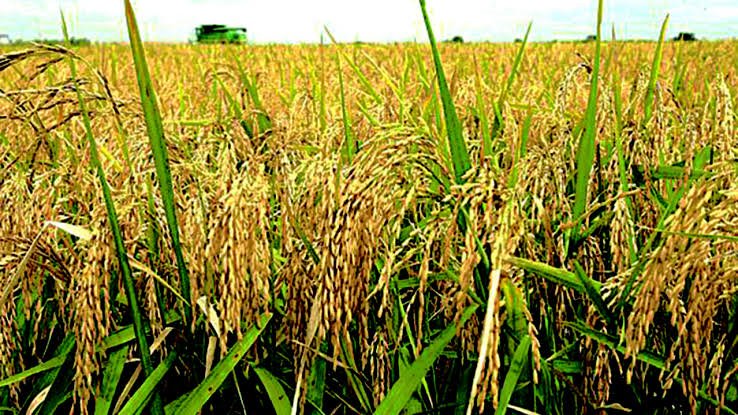
Rice plant growing in Nigeria West Africa.
But with the ever green nature around Nigeria there are various reasons it’s difficult for Nigeria to produce all the rice it needs. High inflation and production costs, insecurity, policy uncertainty, and artificial scarcity caused by middlemen are some of them. Also, some consumers prefer the imported varieties.
Wastewater for irrigation.
One of the major reason is water scarcity. The soil for rice cultivation should ideally be slightly wet and this can be achieved by rainfall or irrigation. In parts of Nigeria there’s already a shortage of water for drinking, so people don’t use this precious resource on a thirsty crop.
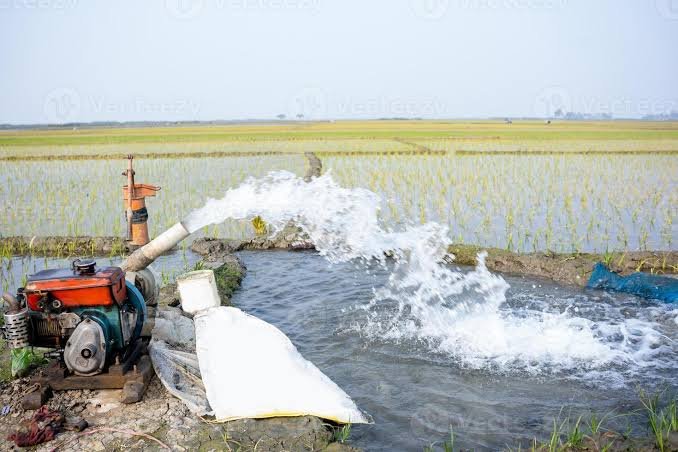
Irrigation of rice fields using pump well.
working on wastewater treatment for reuse to increase rice production, I believe Nigeria ought to embrace the idea. It could boost rice production and enhance food security. It would also help in achieving the Sustainable Development Goal of zero hunger before 2030.
A possible solution to the problem is to use wastewater for irrigation. Around the world, the idea is growing that wastewater can be a resource rather than something to be discarded.
Nigerian rice production
Based on my research I suggest Nigeria could increase rice production by following these steps.
1 Structured harvesting of
wastewater.
There needs to be an organised way of collecting wastewater. In an organised society, waste is collected strategically and sorted to make processing and recycling relatively easy.
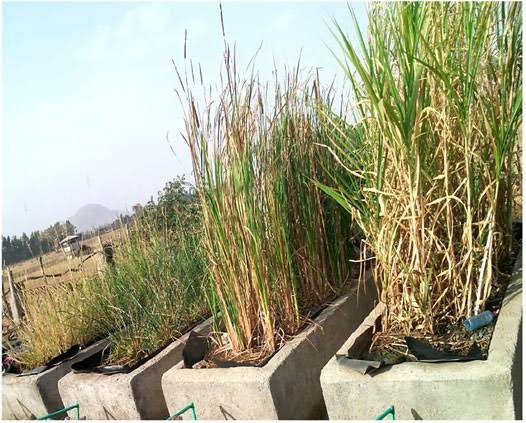
Frontier of waste water treatment.
- Identify reliable sources of wastewater supply.
For wastewater to be a major alternative source of water for rice irrigation, it has to be reliable and dependable. So, the first step is to identify sources and ascertain their reliability. Rice has to be irrigated for a minimum of 90 days (depending on the variety).
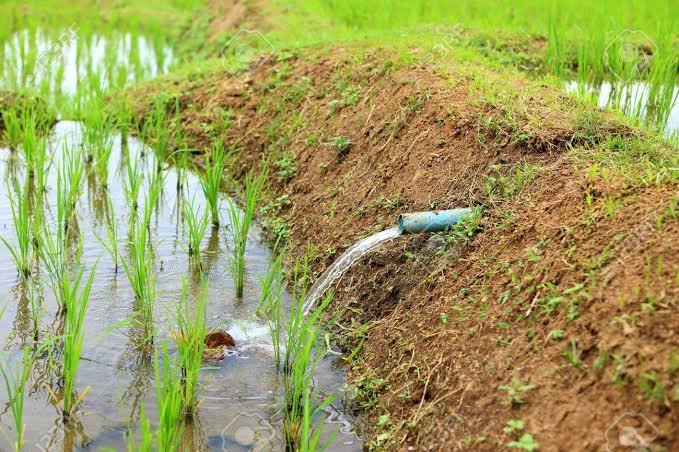
Clean and good reliable water for rice plant.
- Wastewater treatment using phytoremediation.
Phytoremediation is the use of plants and associated soil microbes to reduce the concentrations or toxic effects of contaminants in the environment. It is widely accepted as a cost-effective environmental restoration technology.
All the different categories of wastewater (domestic, industrial and so on) should be treated before administering to plants, except aquaculture wastewater, which already has nutrients that are beneficial to rice crop growth. Extreme caution must be taken when using wastewater for irrigation, especially on some vegetables and fruits that tend to accumulate contaminants that could harm human health.
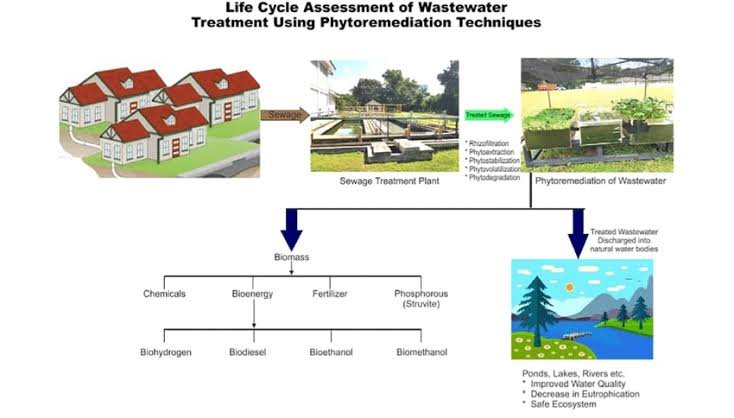
Waste water treatment using phytoremediation.
- Increase land under cultivation using irrigated wastewater
Rice is cultivated on about 3.7 million hectares of land in Nigeria, representing 10.6% of the 35 million hectares of land under cultivation, out of a total arable land area of 70 million hectares. Out of the 3.7 million hectares under rice cultivation, 77% is rain-fed. The area could be tripled (11.1 million hectares) using treated wastewater. This would lead to higher grain yield, which would increase availability, lower prices and ensure self-sufficiency.
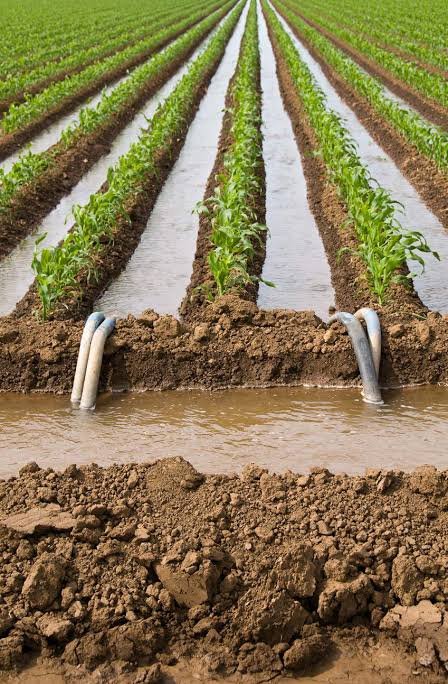
Save use of waterwaste.
- Increase rice cultivation using wastewater for irrigation.
Administering the treated wastewater into rice fields in a pre-determined manner and quantity is necessary for growth and optimum yield. Irrigation scheduling can ensure rice cultivation all year round irrespective of climatic variability.
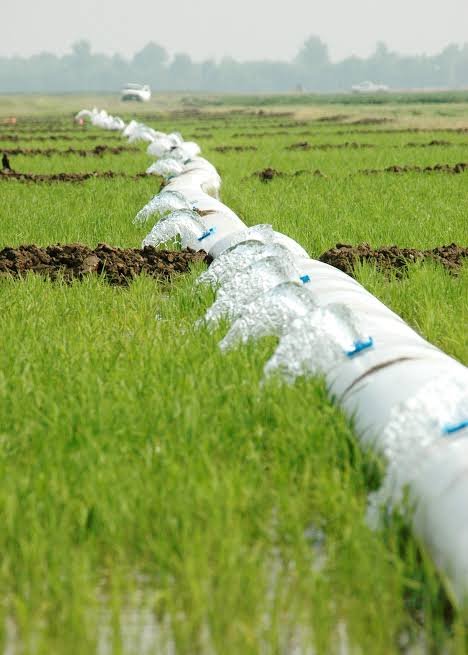
Rice irrigation method.
I hope I was able to educate all of us on how rice producing works to make it a bountyful one and harvest.